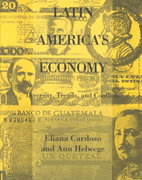Question
1,000 people in town wish to sell their used cars vary in quality, from $1000 to $2000. The distributions is skewed towards better cars: For
1,000 people in town wish to sell their used cars vary in quality, from $1000 to $2000. The distributions is skewed towards better cars: For each 1000 < Q <2000, the average quality of those cars having quality less than Q is
F(Q)=2/3 Q+1/3 1000
Due to the trouble of searching, test driving, evaluating, etc., the cars, buyers are willing to pay up to $150 over the quality of the car.
(a) Suppose all cars are being sold at a single price. What will this price be (assuming it is the highest price the buyers are willing to pay; i.e., the buyers' market is competitive)? Would every car owner be willing to sell at this price?
(b) Suppose it is known that only the cars up to quality Q* are being sold, all at a single price. What will this price be (again, assuming a competitive buyers' market)?
(c) Find the value of Q* in equilibrium (i.e., the quality such that in equilibrium, cars up to this quality are sold and cars over this quality are not sold), and discuss what happens if the highest quality cars being sold are less than Q* or more than Q*.
Step by Step Solution
There are 3 Steps involved in it
Step: 1

Get Instant Access to Expert-Tailored Solutions
See step-by-step solutions with expert insights and AI powered tools for academic success
Step: 2

Step: 3

Ace Your Homework with AI
Get the answers you need in no time with our AI-driven, step-by-step assistance
Get Started


